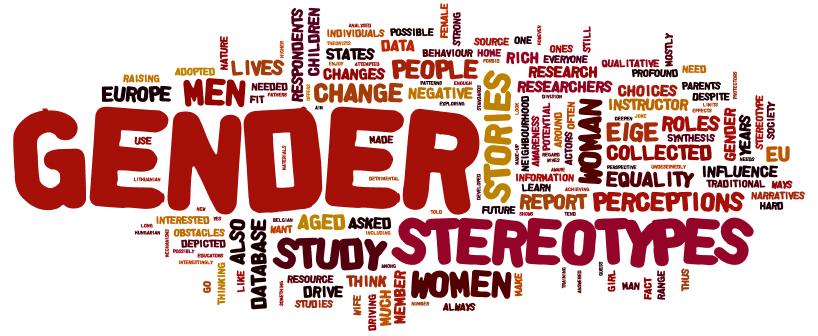
5 minute read
No trust is unjust A protection we cannot a ord to lose
from 2018-06 Melbourne
by Indian Link
We are failing women by slapping on them labels of ‘untrustworthy’ and ‘backstabber’ say APARNA ANANTHUNI and DIPANJALI RAO
“Never trust a politician or a woman.” These are the words of the ancient Indian philosopher and jurist, Chanakya, who authored the renowned political treatise Arthashastra, around 3rd-4th century BCE. Unfortunately, Chanakya was far from alone in his mistrust of women.
If there’s one thing that stays constant across cultures and centuries, it is the idea that women are fundamentally untrustworthy. The Greek philosopher Aristotle, whose writings have had enormous influence on both the western and middle- eastern world, called women “more jealous... more shameless... more deceptive” than men. In the Christian world, women are tainted by Eve’s so-called ‘original sin’: her weakness evidence of all women’s suspect characters. Even Sita, that paragon of South Asian feminine virtue, is asked not once but twice to prove her faithfulness to her husband, Rama, by walking through fire.
One could laugh this off as sexist mythology, but these ideas have continued into the modern world. Consider Australia’s first female Prime Minister. The most damaging and pernicious criticism of ‘Ju-liar’s’ reign was her ‘untrustworthiness’ due to her removal of Kevin Rudd. Australia has removed 14 prime ministers since Federation, including Tony Abbott by our current PM, Malcolm Turnbull. Yet it was Gillard, the woman who became synonymous with ‘backstabbing’.
The trope of the untrustworthy woman manifests itself in the everyday lives of women too. This is clear when we look at crimes that disproportionately affect women, like domestic violence, sexual harassment and rape.
Take, for example, the Supreme Court of India ruling on ‘false’ domestic violence cases last year: “Most of such complaints are filed in the heat of the moment over trivial issues”, it

Australians value freedom of expression but laws against hate speech are still essential
myths about women and their reliability come into play to derail the serving of justice.
Take this stat, for example: only one in 10 of sexual assaults reported to the police result in a guilty conviction, according to a report by the Australian Institute of Criminology.
BY MATT KEAN
Not just this, over 70% of sexual assaults aren’t even reported to the police because women because the woman is not believed.
A study of juror attitudes bears this out. Given that the issue of consent is contested in rape trials, credibility is what jurors depend on. And as we’ve seen, history disfavours women when it comes to displaying faith in their trustworthiness. This history and the prevalence of stereotypes of the untrustworthy woman influence beliefs and actions. A report into juror attitudes conducted by the Australian Institute of Criminology in 2007 concluded; “Many of the jurors in the study not only brought their own beliefs and misconceptions about rape into the courtroom, but also interpreted the complainant’s testimony in light of them..(this) highlights the need to identify the nature and prevalence of beliefs about rape and sexual assault held more widely within the community.” their memorandum to the Chief Justice of India, women’s groups stated, “We are deeply concerned and dismayed that the entire judgment proceeds on the basis that women are liars and file false cases.”
A flourishing society also requires more than just freedom of speech; it requires security, stability, a just legal system and a vibrant economy.
That is why freedom of speech is not absolute. In this country, it is criminal to disclose secrets which risk the lives of Australian soldiers. It is likewise a crime for a corporate executive to disclose market sensitive information to his mates. The law protects us from slander and protects privileged comments made to our lawyers.
As a society, we recognise that these restrictions do not hurt our democracy or way of life. Indeed, we understand that they are necessary to maintain it. And laws against hate speech are no less necessary, because racism and bigotry tear at the heart of our social fabric.
Views like this aren’t limited to India. Women all across the world, including in Australia, face barriers when trying to access justice. Sexual crimes are already hard to prosecute because they are usually committed in private. In situations where it is the woman’s word against the man’s, fearful that they won’t be believed by police. And even if they do, the system will let them down.
The proposed amendments to the Racial Discrimination Act were put forward on the basis that the current wording of Section 18C inappropriately constrains our freedom of speech.
And they’re not wrong. Defendants who plead not guilty to sexual assault are likelier to be acquitted than defendants who plead not guilty to other crimes. In 2006 nearly 60% of defendants who pleaded not guilty to sexual assault were acquitted vs. 25% for drug offences or 45% for homicide. Simply put, when a man sexually assaults a woman, it is highly likely he will get away with it, in large part
That section makes it unlawful to do an act in public which “is reasonably likely… to offend, insult, humiliate or intimidate another person or a group of people” if “the act is done because of the race, colour or national or ethnic origin of the other person
There is no doubt that freedom of speech is important but it is important because of the role it plays in our democracy. Freedom of speech ensures that when you or I go to the ballot box we can make an informed decision about who to vote for.
Things have begun to change, albeit slowly. The #MeToo movement has been key to this, not only giving women voices, but finally giving them a chance to address the impact of being mistrusted. After the Bill Cosby verdict, one of the accusers, Lili Bernard said, “Today...the #MeToo movement is saying that women are worthy of being believed.”
Racism and bigotry leave people feeling exiled in their own home. They do not improve the quality of public debate nor do they assist the wise completion of a ballot paper. They are insidious because they attack a person because of their identity; their heritage. They imply that a person is inferior because of who they are. They are hurtful, divisive and can lead to individuals and entire communities feeling unwanted, unvalued and second-class.
Let’s hope that this is just the beginning of recognising how harmful, pervasive and long lived sexist stereotypes are. It is only by critically examining and expunging these stereotypes from our literature, culture, faith and political systems that we can give gender equality a real shot.
As a society, we recognise that restrictions on free speech do not hurt our democracy or way of life. Indeed, we understand they are necessary to maintain it. And laws against hate speech are no less necessary, because racism and bigotry tear at the heart of our social fabric
Freedom of speech is necessary so that as a community, we can debate political ideas and so that individuals can have a say on decisions that affect them.
Section 18C ensures that everyone has a role to play in that debate.
Comments today can also revive memories of past wrongs. Unfortunately, few ethnic groups have been spared the pain of racially justified persecution. Examples such as slavery in the United States and the Holocaust are well known. In recent times, the a vibrant, rich and diverse society. A society not focused on the differences between us, but founded on the strengths our differences afford us. Section 18C stands, not as a threat to freedom of speech, but as a protector of the purposes which that freedom serves, and as a guard to an achievement exceptional in this time and rare in times before.
Matt
Kean is the Member for Hornsby and Parliamentary Secretary for Communities.








